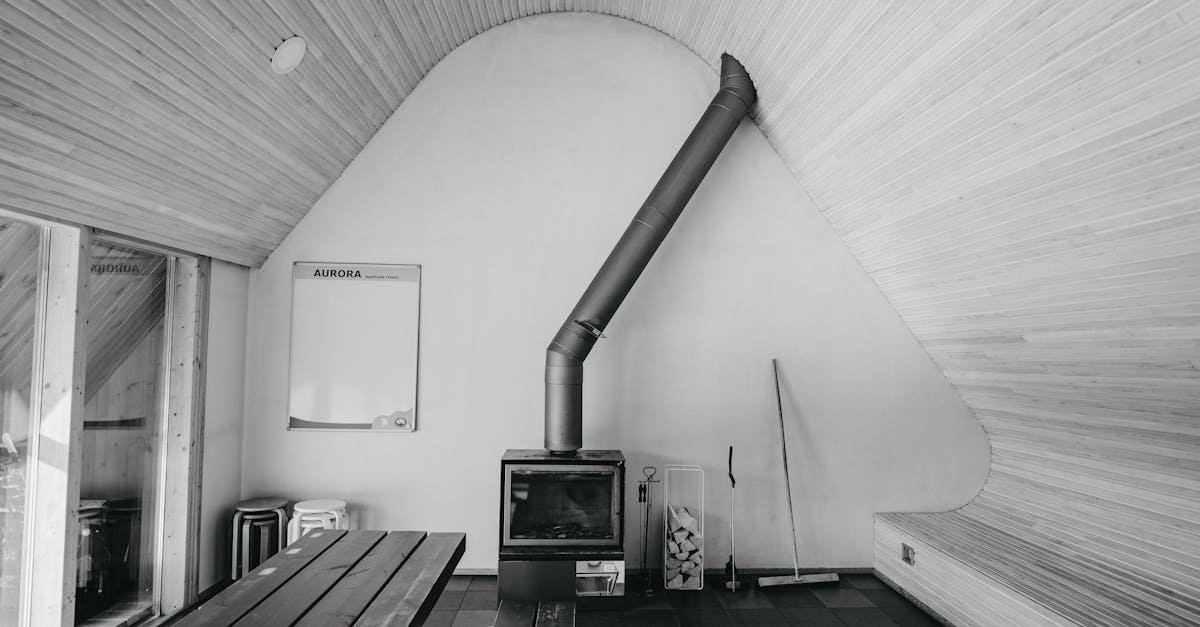Looking for an energy-efficient heater? You’ve come to the right place! Energy-efficient heaters can save you money on your utility bills while keeping your home cozy during the colder months. By choosing the right type—like heat pumps, electric or gas heaters—you can enjoy warmth without very costly.
Understanding Energy-Efficient Heaters
Energy-efficient heaters provide warmth while cutting energy costs. They offer significant benefits for your home and environment.
Benefits of Energy Efficiency
- Cost Savings: Energy-efficient heaters lower your utility bills. They use less energy and maintain the same warmth. Monthly savings can add up over time, helping your budget.
- Environmental Impact: Using less energy reduces emissions. This helps conserve natural resources and benefits the planet. Choosing an efficient heater makes a positive contribution to sustainability.
- Longer Equipment Life: Efficient heaters typically have better build quality. They require less maintenance and last longer. This means fewer replacements and lower overall costs.
Key Features to Look For
- Check for high efficiency ratings. Look for Annual Fuel Utilization Efficiency (AFUE) for furnaces. Seek appliances with the ENERGY STAR label for other heater types. These ratings indicate optimal performance and energy saving.
Types of Energy-Efficient Heaters
Choosing the right kind of energy-efficient heater plays a big role in improving comfort levels and reducing utility costs. Here are some common types to consider.
Electric Heaters
Electric heaters offer convenience and safety, making them a popular choice. They come in various designs, such as:
- Convection Heaters: Convection heaters heat a fluid, like oil, which then warms the air in the room. They cycle less often, providing steady warmth and efficiency.
- Radiant Heaters: Radiant heaters emit infrared radiation. They heat objects and people directly. These heaters work well for short-term use, especially when you stay within their line of sight.
- Safety Features: Prioritize heaters with safety features, including tip-over switches, thermostatic control, and UL certification. These features help prevent accidents and improve reliability.
Gas Heaters
Gas heaters provide a powerful heating option. They use natural gas or propane, offering significant heat output and efficiency. Consider these factors:
- Furnaces: Gas furnaces typically have high Annual Fuel Utilization Efficiency (AFUE) ratings, meaning they effectively convert gas into heat.
- Wall Heaters: Wall-mounted gas heaters save space and are suitable for smaller areas. They can quickly heat your space without taking up floor space.
- Ventilation: Ensure proper ventilation with gas heaters to maintain safety. Look for models with sealed combustion systems to protect indoor air quality.
Solar Heaters
Solar heaters harness energy from the sun. They offer a sustainable heating option that reduces energy costs. Key information includes:
- Passive Solar Design: This approach involves strategically placed windows and thermal mass to capture heat, reducing the need for mechanical heating.
- Active Solar Heating Systems: These systems use solar panels to collect sunlight, transferring that energy to water or air for heating needs.
- Cost Savings: Solar heating can significantly lower your energy bills. Though the initial investment might be higher, long-term savings make them worthwhile.
By understanding these different types of energy-efficient heaters, you gain insight into how to select the right one for your needs. Each option offers distinct advantages and opportunities for savings.
Choosing the Right Energy-Efficient Heater
Selecting the right energy-efficient heater relies on understanding your space and needs. Consider these important factors.
Room Size Considerations
Assess the size of your room. A small electric heater suits a compact space. For larger areas, opt for a higher-output heater, ensuring warmth throughout. Measure your room in square feet. Use this measurement to determine the heater’s wattage. As a rule, you’ll need about 10 watts for every square foot. For example, a 300-square-foot room requires a heater with at least 3,000 watts.
Heating Needs Assessment
Evaluate your specific heating needs. Consider how often you use the space and the desired temperature. For occasional use, a radiant heater provides quick warmth. For consistent use, a convection heater maintains steady temperatures. Factor in insulation quality and window types. Homes with poor insulation may need more powerful heaters. Identify your heating preferences to find a suitable model tailored to your needs.
Installation and Maintenance Tips
Proper installation and regular maintenance ensure your energy-efficient heater operates safely and effectively. Follow these guidelines to maximize performance.
Proper Installation Guidelines
- Confirm the heater size matches your room’s dimensions. An oversized heater wastes energy and doesn’t heat effectively.
- Connect electric space heaters directly to wall outlets. If an extension cord is necessary, opt for a 14-gauge or larger heavy-duty cord. Keep cords short to minimize energy loss.
- Use thermostatically controlled heaters. They prevent overheating and save energy by maintaining comfortable temperatures.
- Position the heater on a level surface. Keep it away from foot traffic and at a safe distance from children and pets to enhance safety.
- Install vented heaters alongside an outside wall. This placement allows proper venting of flue gases, ensuring safe operation.
- Inspect and clean your heater regularly. Dust and debris can obstruct airflow and reduce efficiency.
- Replace filters as needed. Clogged filters decrease performance and can increase energy consumption.
- Check for gas leaks if using gas heaters. Use a soap solution on connections; bubbles indicate a leak.
- Schedule professional maintenance at least once a year. Technicians can assess efficiency and address any serious issues.
- Test safety features regularly. Ensure the shut-off switches and alarms function correctly to maintain safety standards.
By adhering to these installation and maintenance protocols, you enhance the longevity and efficiency of your energy-efficient heater.
Conclusion
Choosing an energy-efficient heater is a smart investment for your home. By understanding your heating needs and exploring various options you’ll not only enhance your comfort but also save significantly on energy costs. Remember to look for high efficiency ratings and consider the specific requirements of your space to ensure optimal performance.
With proper installation and regular maintenance you can maximize the benefits of your system. Embrace energy efficiency and enjoy a warmer home while contributing to a healthier planet. Your choice today can lead to lasting comfort and savings for years to come.








